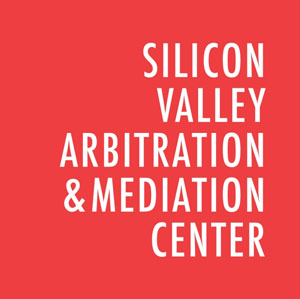As we considered the founding of Silicon Valley Arbitration & Mediation Center, we had to ask the essential question: Why? What is the problem in need of a solution? Can we add real value to the mélange of arbitral institutions around the world, already comprising thousands of lawyers and industry experts?
The foundational issue, on which most would agree, centered on the apparent reluctance of Silicon Valley and other tech companies to rely on the plethora of available mediation and arbitration solutions to resolve their business and IP disputes. Our founders posited several reasons. First were some of the ‘traditional’ objections to arbitration generally.
E.g., concern about losing one’s right to appeal (true enough; that’s the price of expedited and less burdensome dispute resolution).
E.g., that ancient barnacle on the arbitral ship—the discredited myth that arbitrators tend to “split the baby” in weakly reasoned decisions. “I have a strong case. Why should I turn it over to arbitrators to impose their own views of ‘rough justice,’ seeking to leave everyone happy?“ Few informed litigators still worry about this. See https://www.linkedin.com/pulse/can-arbitrator-do-what-solomon-did-mohamed-raffa
But then we asked: what were the factors unique to the technology eco-system, that seemed to cause even less frequent resort to ADR than in the old brick-and-mortar world? Some possibilities:
• Denial: Tech companies (start-ups in particular) live in a fast-moving world with no time to think about litigation—much less to dwell on the process for resolving disputes. Engineers and venture capitalists, after all, are hyper-rational beings, exuding confidence in their own ability to talk their way through disagreements. “Disputes, no matter the emotional content, pale in significance when considering the world-changing technologies we are creating.”
• Distrust: Even Millennials may know the Dickensian mythology of AMD v. Intel — “the arbitration that wouldn’t die.” The Hatfields v. McCoys had nothing on the self-destructive wars that characterized this internecine conflict for years on end. “Arbitration is more efficient and saves time? You must be kidding. I saw what happened in the AMD case.”
OK, we thought; levels of denial and distrust might be more prevalent in high-tech industries. But AMD v. Intel is really old news. And rational decision makers surely realize that full-bore judicial litigation can knock a tech company right off the rails. Watching the judicial travails of Google, Apple, Microsoft and Qualcomm, can the tech community really be overlooking the enormous time and expense of modern litigation? Probably not.
Which led us to the factor that underlies the creation of SVAMC: The need for an organized pool of arbitrators and mediators who “get” technology—who understand not just the technologies, but the unique business characteristics of tech enterprises. Many in the management ranks of tech companies, in my humble opinion, are dubious about “traditional” neutrals who have grown up litigating construction, real estate, family law, insurance and general commercial disputes. They wonder if a given neutral will even understand, much less competently mediate or adjudicate, technology legal issues that may determine survivors or losers in a hotly competitive environment.
[R]ational decision-makers surely realize that full-bore judicial litigation can knock a tech company right off the rails.
My belief is that CEOs, CFOs and General Counsel in Silicon Valley want to be guided and judged by their technology “peers” i.e., nationally recognized mediators and arbitrators who have honed their legal skills immersed for years in a Silicon Valley-like stew of creation, disruption and resurrection.
Our hope is that, seeing recognized technology lawyers serving as neutrals, the technology community will start placing their faith in ADR processes that provide not just an expedited and fair resolution of disputes, but also an informed and competent resolution. If the endless search in high tech is for “faster, better and cheaper” products, surely “faster, better and cheaper” dispute resolution—by neutrals with a demonstrated familiarity with technology industries—should lead to increasing and long overdue reliance on ADR.
